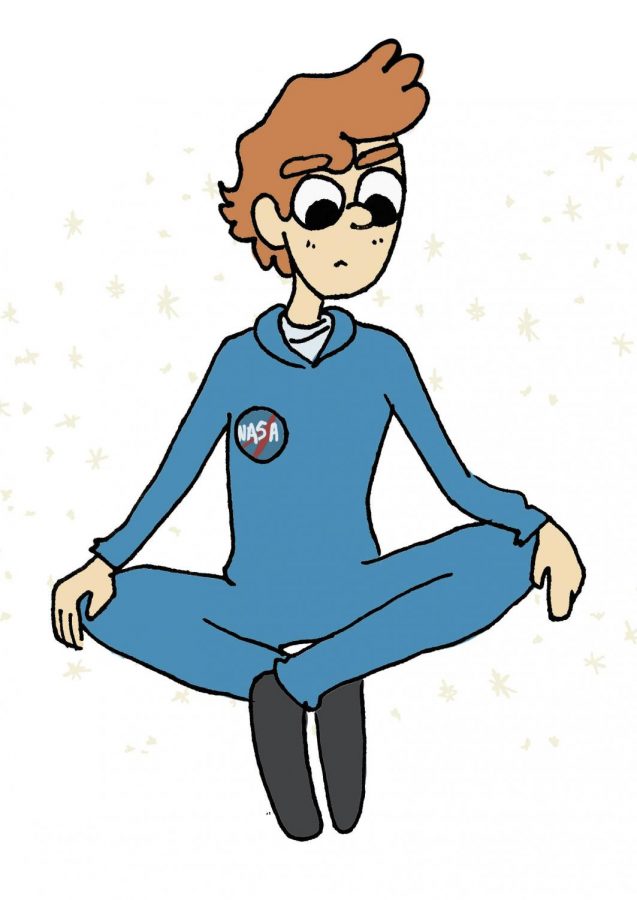New test predicts if astronauts are ready for longer missions
Astronaut
December 8, 2014
Throughout history, traveling to new frontiers has presented explorers with the promise of adventure but the reality of isolation and confinement. While these hurdles are present traveling across oceans in boats and between cities on airplanes, they are never as overwhelming or absolute as they are in outer space.
A new computerized test developed for the National Space Biomedical Research Institute by researchers at the University of Pennsylvania’s Perelman School of Medicine aims to help NASA determine how prepared astronauts are for the psychological challenges they will face on long-duration space missions. The new test, called Cognition, consists of 15 different versions of 10 different computerized tests and is based on research that highlighted the importance of cognitive performance in relation to extended spaceflights.
“The research came about just by the fact that [a] high level of cognitive performance [in astronauts] is essential for successful spaceflight missions,” said Mathias Basner, leader of the team developing Cognition and assistant professor of sleep and chronobiology in the Department of Psychiatry at the University of Pennsylvania. “It is an extreme environment, and any level of mistake may have great consequences. There [are] also a lot of stressors out there that are really unique to a space-type environment, like microgravity. There’s a whole host of environmental stressors [in space] that can affect cognitive performance.”
WinSCAT, the test NASA currently uses to measure cognitive performance among astronauts, is dated and utilizes a limited design in comparison to Cognition, Basner said. The new test may also have application for earthbound individuals in positions that demand intense attention, such as flight controllers, pilots and people performing high-level mathematics, and is more comprehensive than any of NASA’s current sets of neurocognitive tests, according to a Nov. 26 press release from the University of Pennsylvania.
“[The] five tests in the WinSCAT—many of them have a strong working memory component, but there’s many different other cognitive domains that are interesting for space flight that are not covered by that battery,” Basner said. “We have new things in [our test] like emotion recognition because we believe it’s very important if you’re flying to Mars that you’re still able to read your fellow astronauts’ faces and if somebody is actually angry that you don’t misread that as surprised or happy or whatever.”
Basner said there are many variables that impact cognitive function outside of Earth’s orbit that an astronaut closer to home may overlook. Cognition also takes into account microgravity and radiation, which can affect the brain.
“You just have to think about [the fact] that this is really an isolated, confined and extreme environment,” Basner said. “You have the isolation—you can’t just walk out or something. There’s space walks, of course, but it’s not like on Earth where you can go anywhere you want. You’re confined to that space. You’re [also] isolated in the sense that you’re always with the same group of people. It’s extreme in the sense that you don’t have the 24 hour light-dark cycles [that] you have on earth. It’s super hostile.”
Long-duration space flight remains uncharted territory, Scott said. Figuring out how humans will function in space for longer than a year is one of the key goals.
“The neurobehavioral risk is an important one,” Scott said. “It’s one we really need to address in order to make sure the astronauts are safe as possible when they do go out to Mars for a three-plus year mission.”
Long bouts of isolation can leave the mind psychologically impaired and more susceptible to symptoms of depression, according to Rami Gabriel, associate professor of psychology at Columbia.
“[It] has been used as humanity’s greatest form of torture—isolation chambers,” Gabriel said.
A pilot study for Cognition was administered to an astronaut for the first time on Nov. 28, according to the UP press release.
“Part of our project—the international space station part—is really a feasibility study,” Basner said. “Can we put the software up there? Will astronauts be able to do the tests on the station? Is it an acceptable tool for astronauts? I’m happy to report the astronaut took the test battery and I have the data and the data looks good. We got the data, and that is a major milestone for us.”
Although astronauts are specially selected and rigorously trained, they are still prone to the many stresses present in space travel that are not experienced on earth, according to Graham Scott, chief scientist at the National Space Biomedical Research Institute.
“These astronauts are all very heavily trained—psychologically and physiologically,” Scott said. “You’re dealing with people who are right at the top end, in the top few percentiles from the perspective of neurobehavioral health and physiological health. These are very high-performing individuals.”
Being separated from friends and loved ones, reduced contact with mission control as the crew travels further out and the difficulties of operating in an unforgiving environment can all carry a neurocognitive burden, according to Scott. There are also physiological strains that can develop from conditions such as sleep deprivation, which is common for astronauts.
“We’re not always the best judges of how we’re doing [or] how we’re performing,” Scott said. “It’s good to have objective measures and validated tests … we want something more objective than somebody just answering a survey.”








